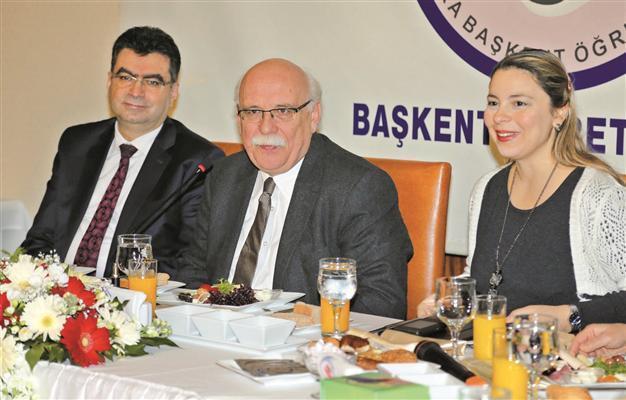Turkish Education Minister rebuffs censor on literary works in textbooks
ANKARA

‘If some publishers attempt to ingratiate themselves to the government with the idea that ‘this government is conservative,’ that is shameful,’ Avcı says. DHA photo
Education Minister Nabi Avcı has rebuffed efforts to censor the literary works of poets and writers in school books, denouncing such efforts as “shameful.”“If some publishers are attempting to ingratiate themselves with the government and the ministry’s Board of Education and Discipline (TTK) with the idea that ‘this government is conservative,’ that is shameful,” Avcı told reporters at a breakfast meeting yesterday. “This is a matter of mentality, which will change over the course of time,” Avcı said. His remarks came as he was asked to lay out his position on the censorship of literary works in school books during his first in-depth conversation with reporters covering educational affairs in Turkey.
‘Censorship unacceptable’
Abridging very long texts for school books in line with the curriculum can be justified as this does not always mean there is an intention to censor the material, according to Avcı.
“However, apart from that, some publishers quote literary works by omitting certain parts of them which they dislike. This is unacceptable. They should either not quote that particular poem or quote it the way it is,” Avcı said. Censorship in school books has made headlines recently with both Turkish and non-Turkish poets and writers receiving their fair share of censorship. In the most recent case, two verses of the poem “Table,” which was written by Turkish poet Edip Cansever, were omitted from high school text books because they included the word “beer.” Chants written by folk poets Yunus Emre and Kaygusuz Abdal hundreds of years ago have already felt the heavy hand of censorship, while French-Lebanese writer Amin Maalouf’s novel “Samarkand” was investigated for allegedly “being vulgar and insulting Islam.”
There was an attempt to ban certain parts of John Steinbeck’s classic “Of Mice and Men” owing to “immoral” passages, and an investigation was launched into “My Sweet Orange Tree” by Brazilian writer José Mauro de Vasconcelos on the same grounds. Avcı was also asked whether he had plans for projects that may include fundamental changes. The education minister stressed he favored reforming the current system instead of implementing radical changes. Avcı signaled that Turkey would not see a radical change in its education system like the one that occurred during his predecessor Ömer Dinçer’s tenure. “We don’t have any surprise radical projects planned. We are aiming to improve the current system and to fix its possible faults,” he said, implying he would pursue an interactive policy implementation. All changes and reforms to the education system carry risks, he also said. k HDN
















